More than 100 dolphins and thousands of fish found dead in Brazilian Amazon
Dolphins die due to severe drought and many more could be affected if water temperatures remain high
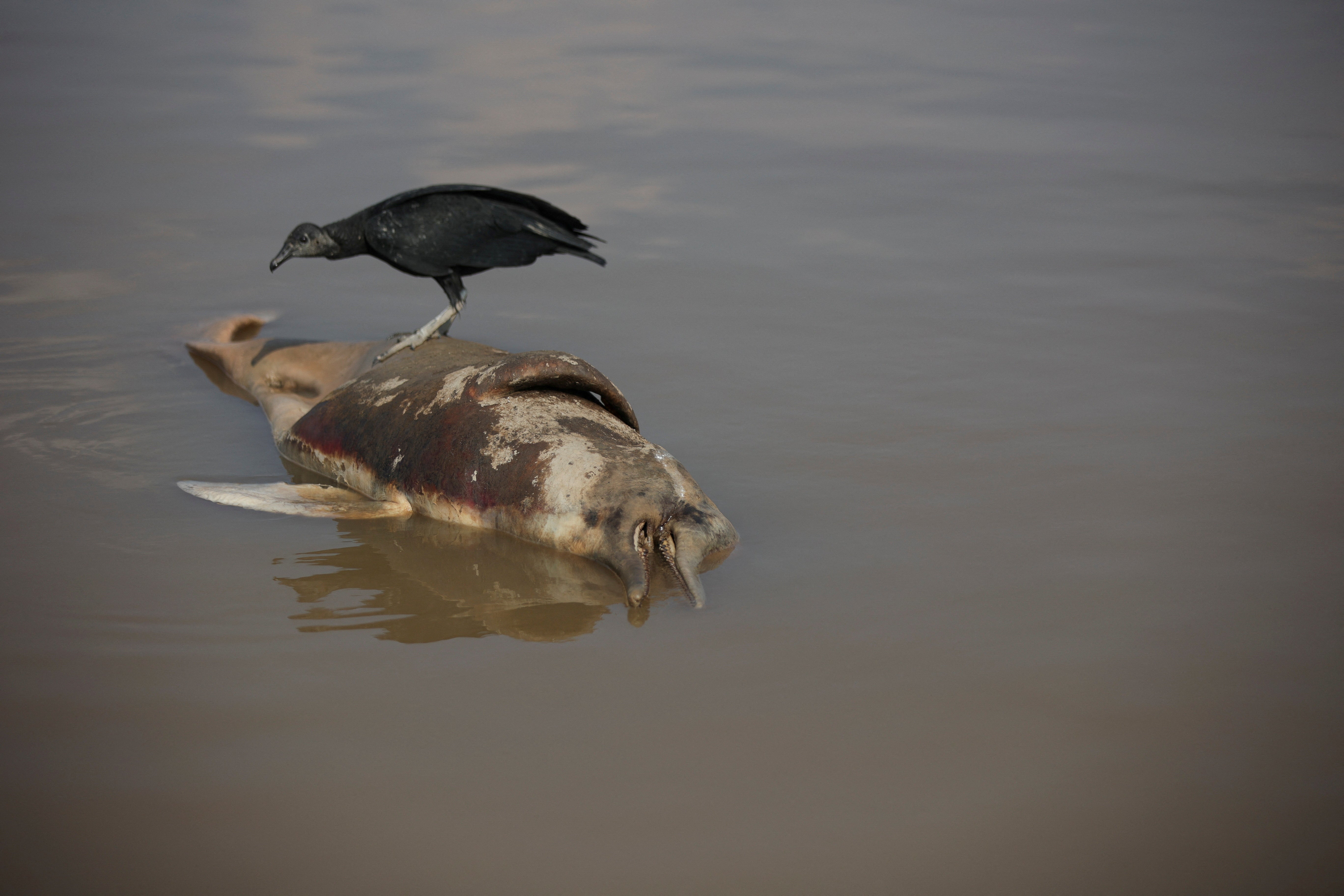
More than 100 dolphins have died in the Brazilian Amazon rainforest in the past week as the region grapples with a severe drought, and many more could die soon if water temperatures remain high, experts say.
The Mamiraua Institute, a research group of Brazil’s Ministry of Science, Technology and Innovation, said two more dead dolphins were found Monday in the region around Tefe Lake, which is key for mammals and fish in the area. Thousands of fish have also died, local media reported.
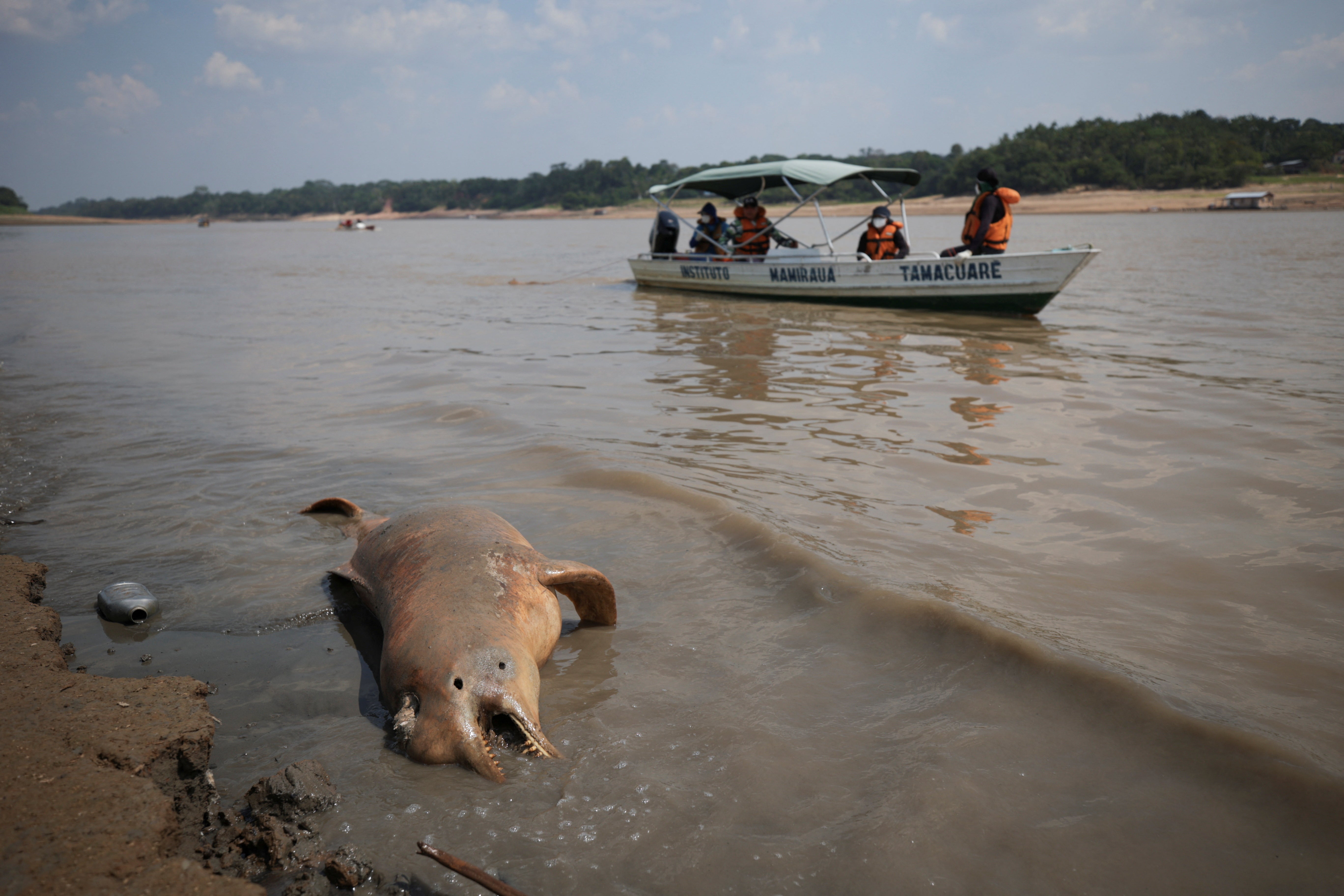
Experts believe high water temperatures are the most likely cause of the deaths in the lakes in the region. Temperatures since last week have exceeded 39 degrees Celsius (102 degrees Fahrenheit) in the Tefe Lake region.
The Brazilian government’s Chico Mendes Institute for Biodiversity Conservation, which manages conservation areas, said last week it had sent teams of veterinarians and aquatic mammal experts to investigate the deaths.
“We have around 900 river dolphins and 500 Tucuxis (in the Tefe Lake) and in one week we have already lost around 120 animals between the two of them, which could represent 5 per cent to 10 per cent of the population,” said Miriam Marmontel, a researcher from the Mamiraua Institute.
Tucuxis are a kind of dolphin.
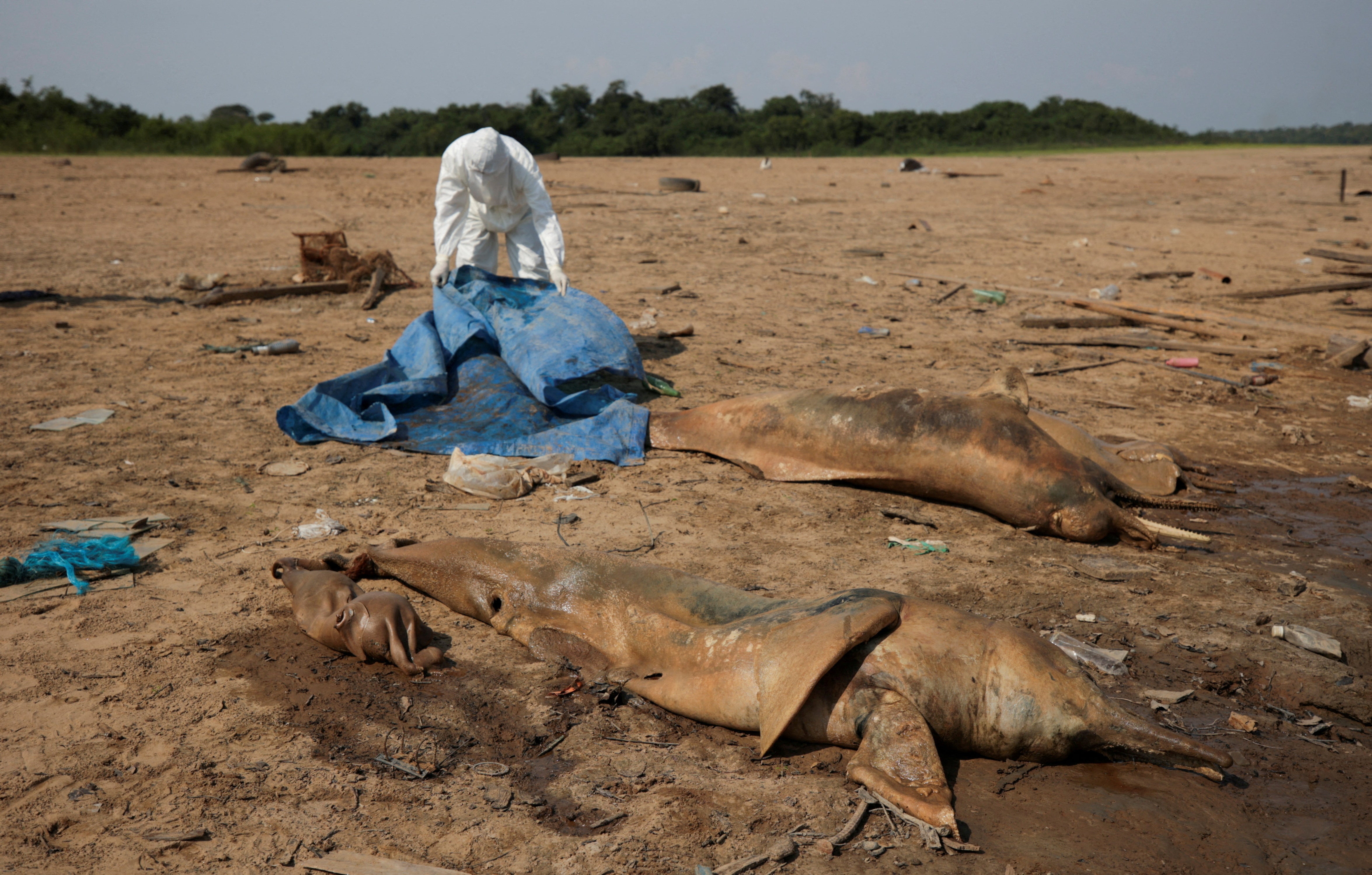
Workers have recovered carcasses of dolphins since last week in a region where dry rivers have impacted impoverished riverside communities and stuck their boats in the sand.
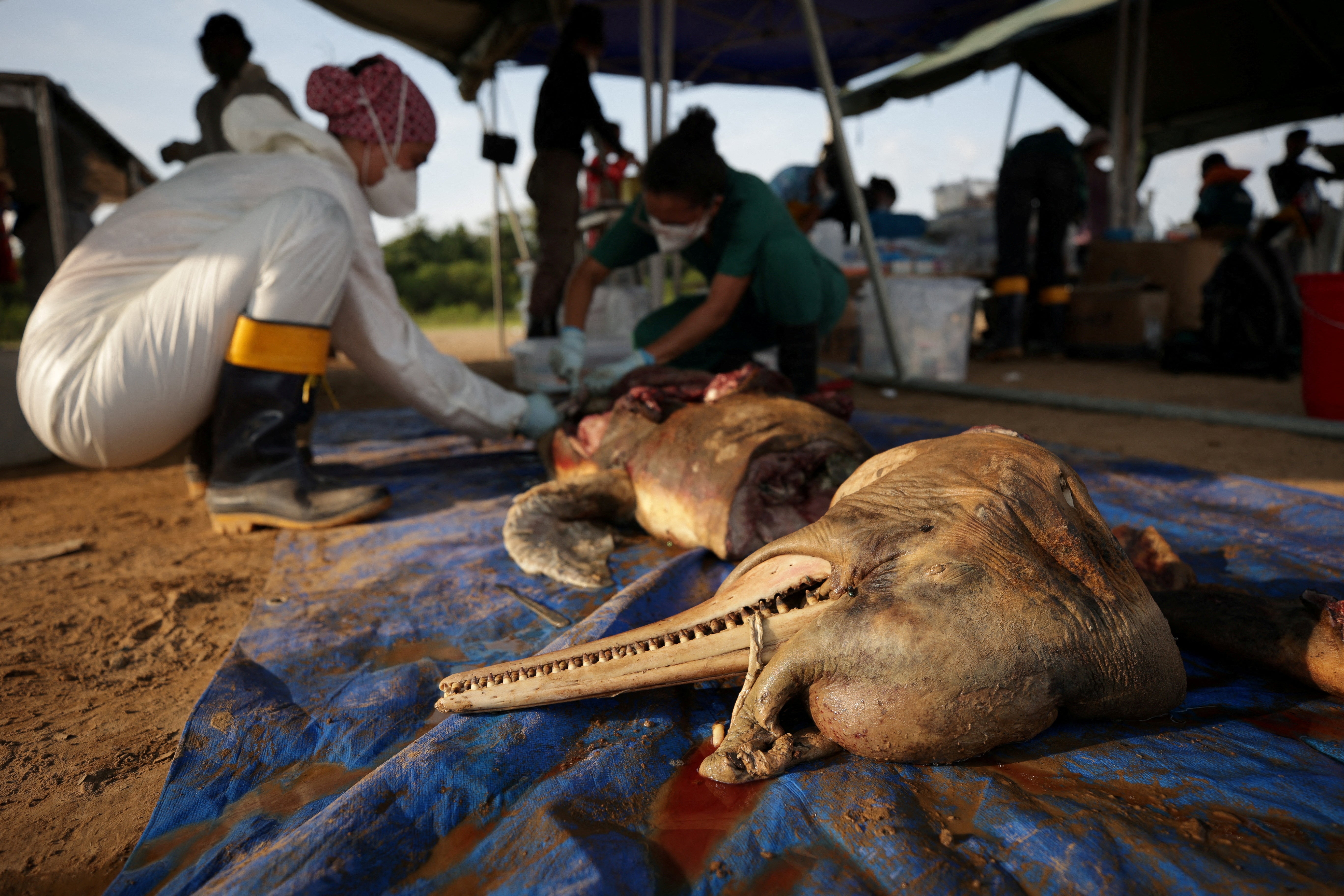
Amazonas governor Wilson Lima on Friday declared a state of emergency due to the drought.
Nicson Marreira, mayor of Tefe, a city of 60,000 residents. said his government was unable to deliver food directly to some isolated communities because the rivers are dry.
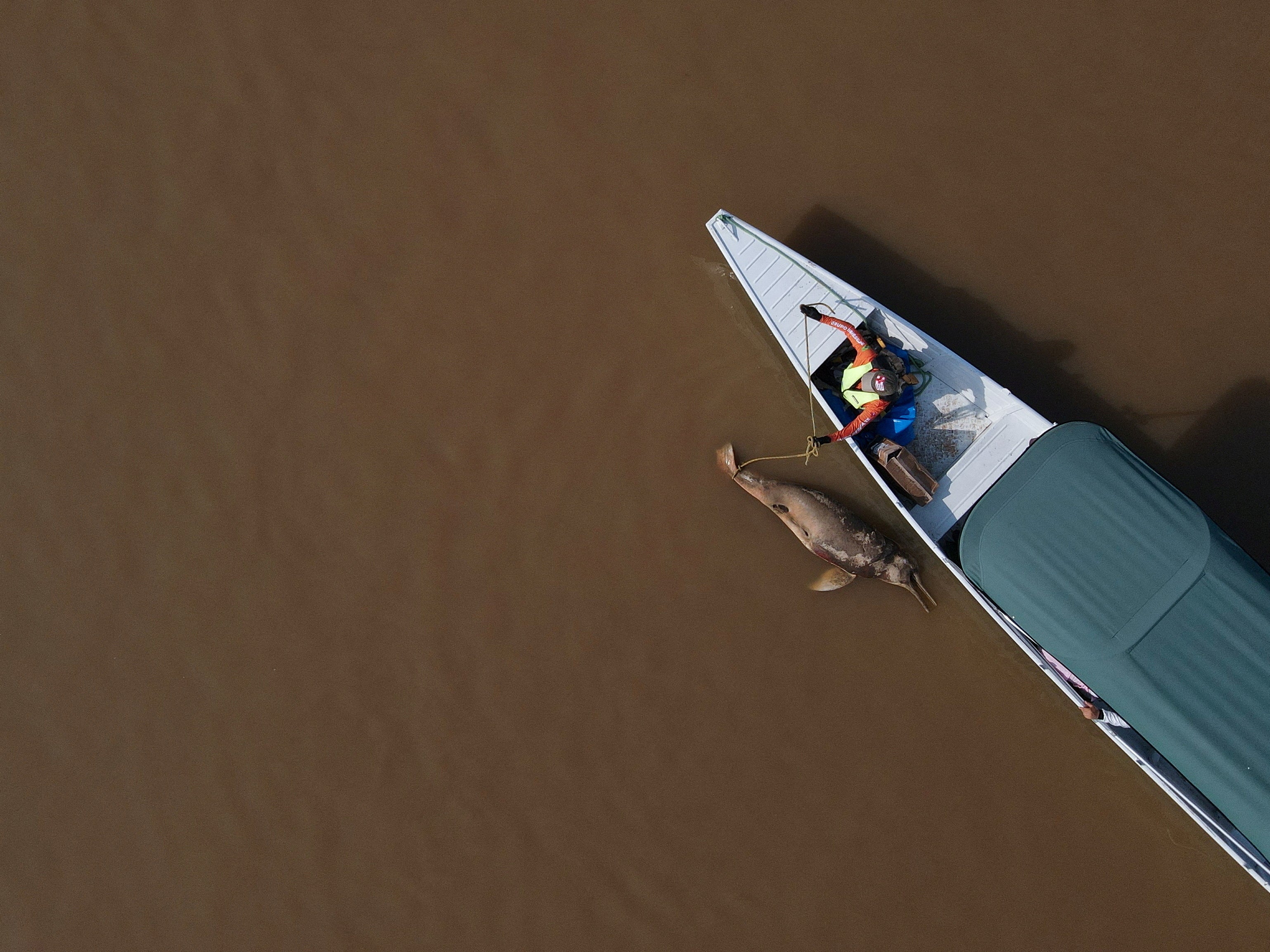
Ayan Fleischmann, the Geospatial coordinator at the Mamirauá Institute, said the drought has had a major impact on the riverside communities in the Amazon region.
“Many communities are becoming isolated, without access to good quality water, without access to the river, which is their main means of transportation,” he said.
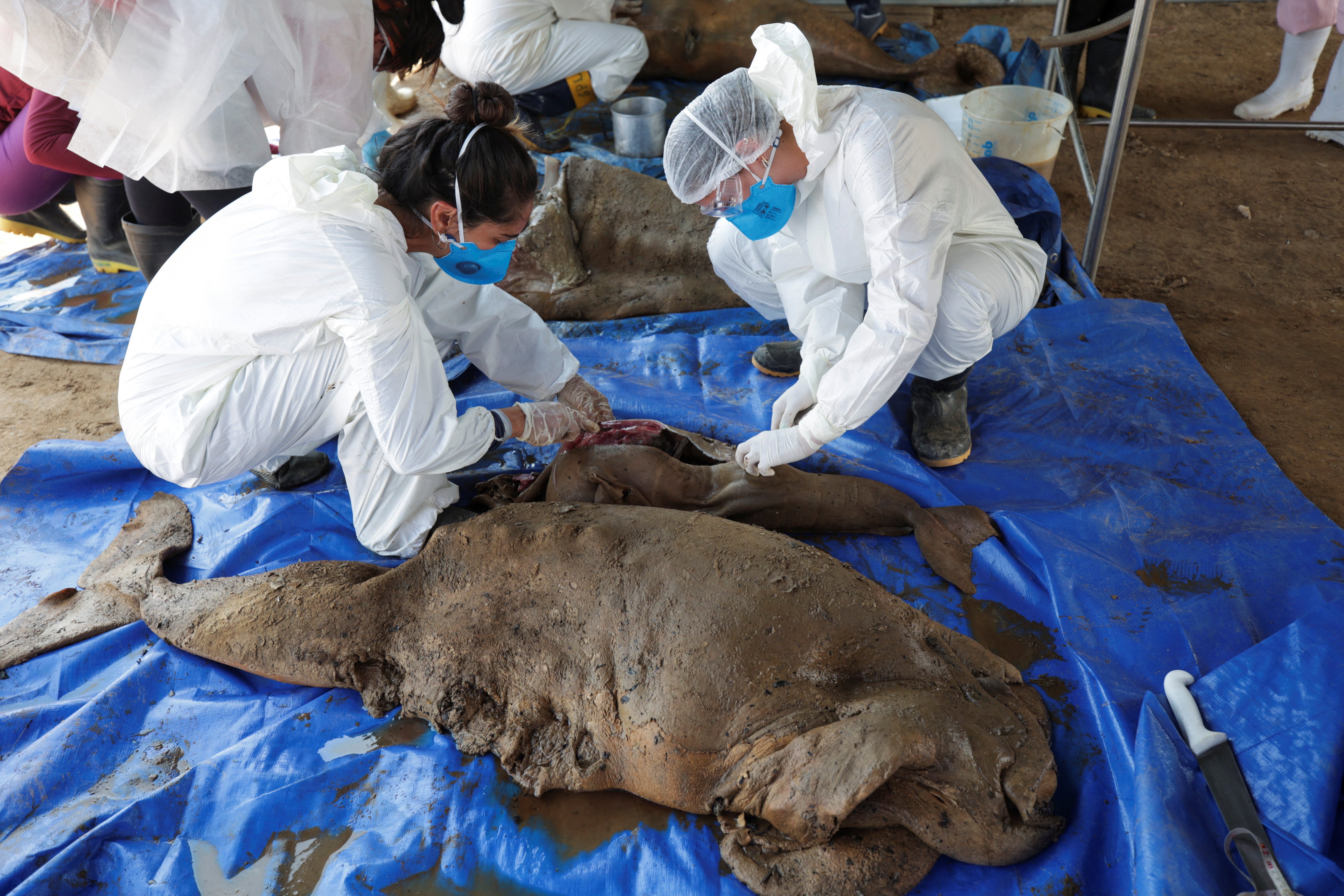
Fleischmann said water temperatures rose from 32C (89F) on Friday to almost 38C (100F) on Sunday.
He said they are still determining the cause of the dolphin deaths but that the high temperature remains the main candidate.
Bookmark popover
Removed from bookmarks